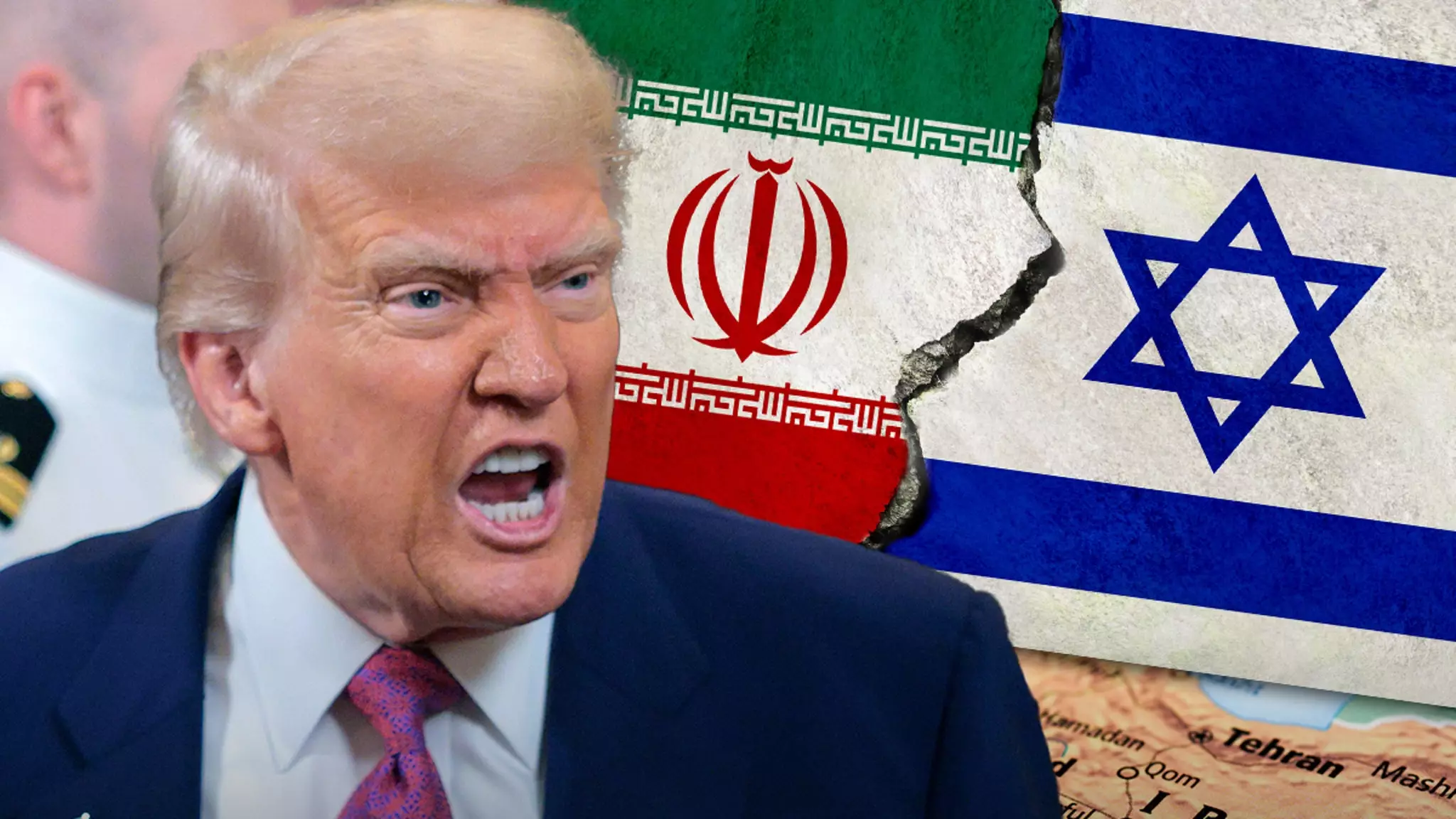In a world often fraught with turmoil, the volatile relationship between Iran and Israel has consistently grabbed headlines. This week, former President Donald Trump unleashed a tirade against both nations shortly after purportedly fostering what he claimed to be a ceasefire agreement. His incendiary remarks reflect not only a personal vendetta against these nations but also an overarching frustration with international diplomacy itself. The outburst underscores an important reality: the stakes in these conflicts remain high, and the narrative often becomes obscured by bombastic public sentiments.
Trump’s Diction: A Reflection of Deep Divisions
Trump’s language was as confrontational as ever, brimming with frustration as he described Iran and Israel’s ongoing battles. His vivid portrayal of both nations as entities “fighting so long and so hard that they don’t know what the f**k they’re doing” encapsulates his unique approach to both diplomacy and foreign policy—one that often prioritizes sensationalism over nuanced understanding. It’s clear that Trump thrives on the theatrics of political discourse, often alienating well-meaning diplomatic efforts with his blunt expressions.
He emphasized his dissatisfaction with Israel’s military actions, particularly criticizing the scale of bombings directed at Iranian positions. Trump’s command for restraint, “calm down,” to a nation that he has historically supported raises intriguing questions about the consistency of his stance on foreign affairs. This contradiction illustrates a deeper, inherent struggle within his political identity: a man who desires to project strength yet simultaneously seeks to reign in what he perceives as excessive aggression.
Media Engagement: The Fight Beyond Borders
Trump’s frustrations also extended beyond the battlefield to the media. In an unprecedented rebuke of CNN and MSNBC, he labeled them “gutless losers,” criticizing their coverage of U.S. military actions in Iran. This animosity towards the press underscores a growing disconnect between his administration’s narratives and public perceptions. By demanding apologies from these media outlets, Trump emphasizes his recurring theme of victimization, portraying himself and the military as underappreciated warriors fighting an uphill battle against both foreign adversaries and homegrown dissent.
The absurdity escalates when one considers Trump’s claims of a “magnificent success” following U.S. airstrikes on Iranian nuclear sites, which he heralded via social media. Such proclamations may bolster his supporter’s enthusiasm but risk alienating moderate voices desiring a more balanced perspective on the complex geopolitical landscape. The absence of a confirmed agreement from Iran regarding a ceasefire adds another layer of ambiguity, revealing Trump’s potential miscalculations.
Navigating a Complex Landscape
In parsing Trump’s latest outburst, one cannot overlook the inherent complexity of Middle Eastern geopolitics. The president’s words may reignite simmering tensions and potentially exacerbate long-standing conflicts. His style may resonate with those who favor bombast over diplomacy, yet the consequences of such rhetoric could prove disastrous. The delicate balance of power in the region demands a more thoughtful approach—one that is not merely reactionary or impulsively driven by personal grievances.
Through his frictional commentary, Trump seems to advocate for a hardline stance that disregards the multifaceted motivations and desires at play within both Iran and Israel. Effective diplomacy requires an appreciation for history, culture, and intricate political nuances—elements that Trump’s deployment of divisive language often obscures. Rather than fostering dialogue and understanding, it risks escalating a volatile situation to new heights.

